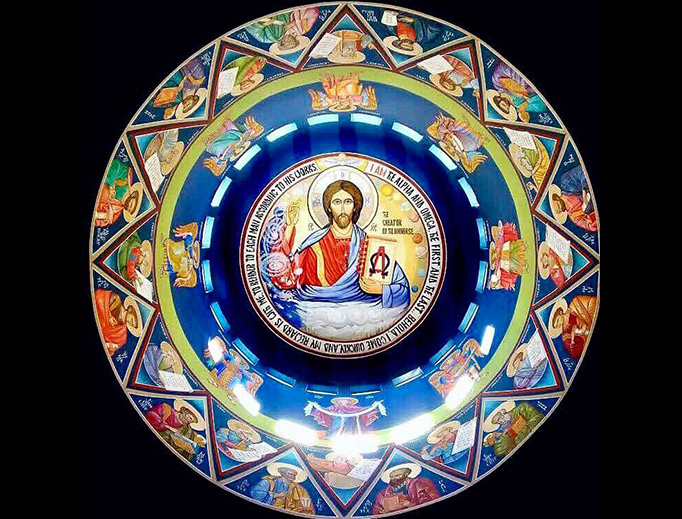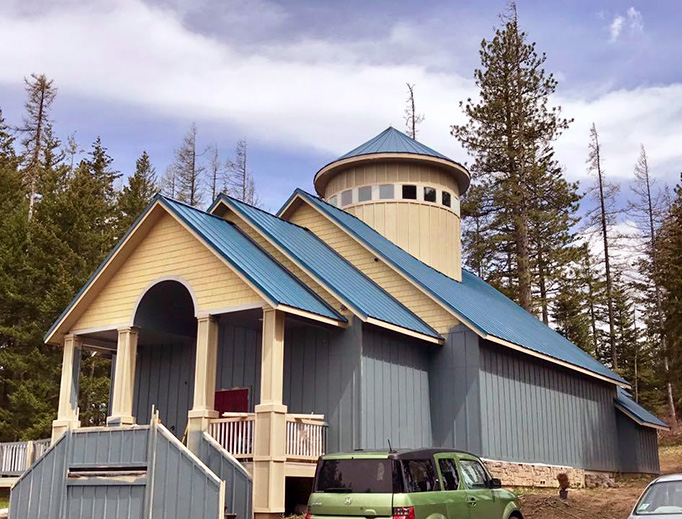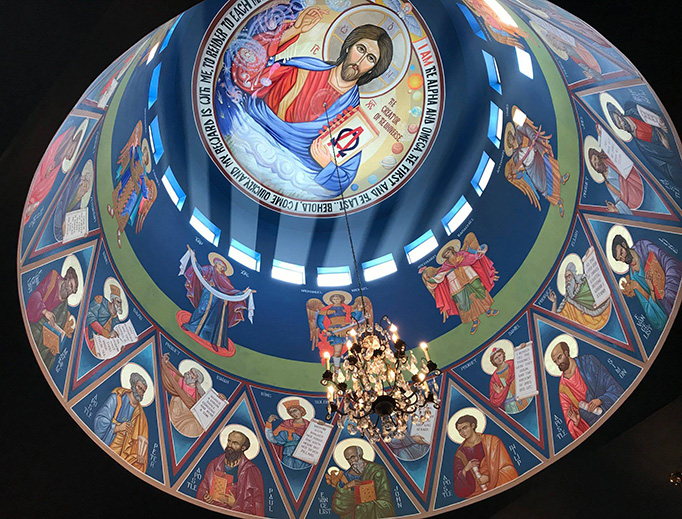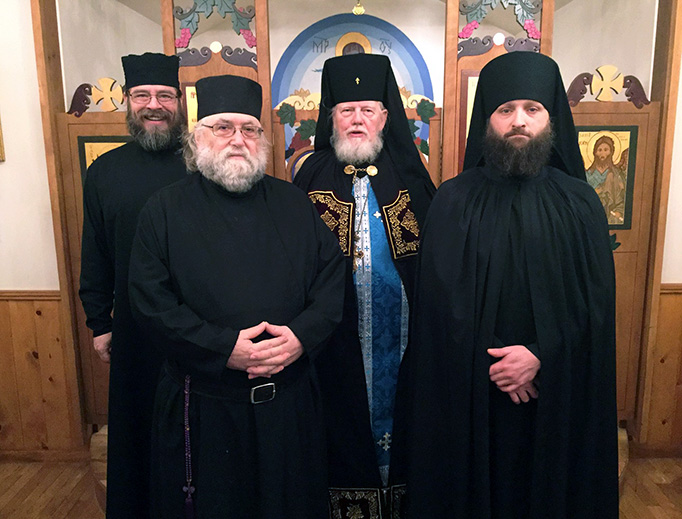A Digital Pilgrim Begins His Way: Duchovny Dom Byzantine Catholic Monastery
The spiritual benefit of visiting an Eastern Catholic monastery like Duchovny Dom is incalculable.

I’d like to invite you, dear reader, to journey with me on a digital pilgrimage to seek and find the spiritual wisdom of Eastern monasticism. In The Way of a Pilgrim, a classic of Eastern spirituality, an unnamed pilgrim is inspired to learn the meaning of St. Paul’s injunction “pray without ceasing” (1 Thessalonians 5:17). In our busy and noisy world, how do we learn what these words mean? Where are our spiritual fathers to consult? Our plague-ridden Church is wanting for true spiritual masters – those who have met Christ (not just know things about Christ) and are willing to share him with others. We also live in a culture in which we are overworked and taxed for time. How many average Catholics would take their precious little leisure time to go on a pilgrimage to find a modern St. Antony? It’s a tough pilgrim road so I thought it would be nice to provide a roadmap and introduce you to some people who are striving toward Christ and willing to help you too!

Nestled in the Blue Mountains of Western Oregon sits Duchovny Dom Byzantine Catholic (Ruthenian) Monastery. This community of men is a relatively recent implantation of traditional Byzantine monasticism in the Western U.S. It was founded in 2013 by Archpriest Joseph Stanichar, who is the hegumen (abbot) of the monastery. I was blessed to meet Fr. Joseph when I was a member of St. John Chrysostom Byzantine Catholic Church in Seattle and he left a lasting impression. Fr. Joseph, in the true sense of the term, is a founder. He founded the majority of the Byzantine Catholic churches in northern Oregon and Washington state. After a vocation as an Air Force chaplain, Fr. Joseph was assigned to found a Church in Spokane and then a parish in Seattle. (He also founded parishes in Lacy, Washington, and Portland, Oregon.) After a long stint as a pastor, retirement as a monastic founder is his last endeavor. “After a very busy life as a parish priest and missionary, it is a great luxury and privilege to experience the melody of our theology and the beauty of our Faith, and the poetry of love in our liturgical text; a time to appeal to God for spiritual maturity.”
The monastery itself is picturesque. It is truly nestled in nature, framed by mountains and meadows. It sits on 77 acres, 40 of which are forested. Seclusion and silence are necessary for the monastic struggle. However, the monastery is not so remote that it is inaccessible. Monastic hospitality is a given and the monks are happy to welcome pilgrims for personal and organized retreats. No one is turned away for lack of funds, though a suggested donation per day is welcome. While there, the Byzantine monastic typikon (daily monastic rule) is worth experiencing. It is a robust expression of Psalm 119, “Seven times a day I will praise you.” The monks spend many hours in liturgical prayer, with personal prayer celebrated in their monastic cells.
Each monk has an assigned monastic “obedience” or work. Duchovny Dom is a kind of working farm as well as monastery. The monks keep chickens, goats, babydoll sheep, ducks and bees. They also keep a monastic garden and strive to be as self-sustaining as possible. All the while through their “obedience” monks are internally praying the Jesus Prayer – Lord Jesus Christ, Son of God, have mercy on me, a sinner. Over and over it is repeated until it becomes “sweeter than honey to my mouth” (Psalm 119:103). The practice of the Jesus Prayer is not vain repetition — rather, it is aimed at internalization. It is a constant invitation to the Lord to dwell ever deeper in the soul. Those who are in love do not tire of the name of their beloved. So too, the monks never tire of calling on the Name of Jesus.

The katholikon (the main monastic church) is a work in progress, but what beautiful progress it is. The dome with the icon of Christ Pantocrator and the various beautiful icons around the Church truly create an atmosphere of “Heaven on Earth.” The Divine Liturgy pulls back the veil between heavenly worship of the Blessed Trinity and our human striving for the Divine. The beautiful environment of the katholikon, the sweet smell of the incense, and the movement of the liturgy is meant to keep the senses active and focused so that the mind and heart can ascend to God.

Of course, having the monks at your disposal is an excellent opportunity for holy conversation. It can be difficult for laypeople to garner wisdom from books about the spiritual life. Often these books, while excellent and worthwhile, are the ripe fruits of personal sanctity and contemplation. As such, they can be inaccessible for those who are not ready. The beauty of visiting a monastery is the experience of those who are struggling (like the rest of us). Monks and nuns are engaged in the ascetic struggle. Some have angelic countenances and one can sense that they’ve “made it” but these are rare. Most are struggling with the same kinds of spiritual challenges that we “in the world” are struggling with. They have the advantage of time and focused attention and it is at this intersection that holy conversation should occur. Fr. Joseph says, “The love of learning and desire for God is quietly and slowly realized in the monastic life, the two-sided mystical gifts, joy, and suffering bound by love, in the heart, the Throne of mystical experience. God is with us!”
The spiritual benefit of visiting an Eastern Catholic monastery like Duchovny Dom is incalculable. The experience of Eastern monastic prayer in a beautiful setting, and with a group of men engaged in the labor of purifying themselves of the passions, is an experience that no one should be without. Should you find yourself on the West Coast, please get in touch with the monks of Duchovny Dom, take some time out, and go seeking spiritual wisdom as a pilgrim. Ask the monks about unceasing prayer of the heart, ask Fr. Joseph to hear your confession, go to Divine Liturgy and the services of the Typikon. You won’t regret it! You can contact them here:
- Keywords:
- byzantine church
- monasticism

















